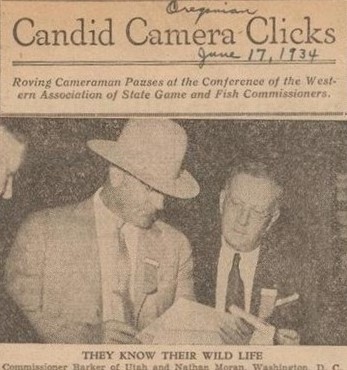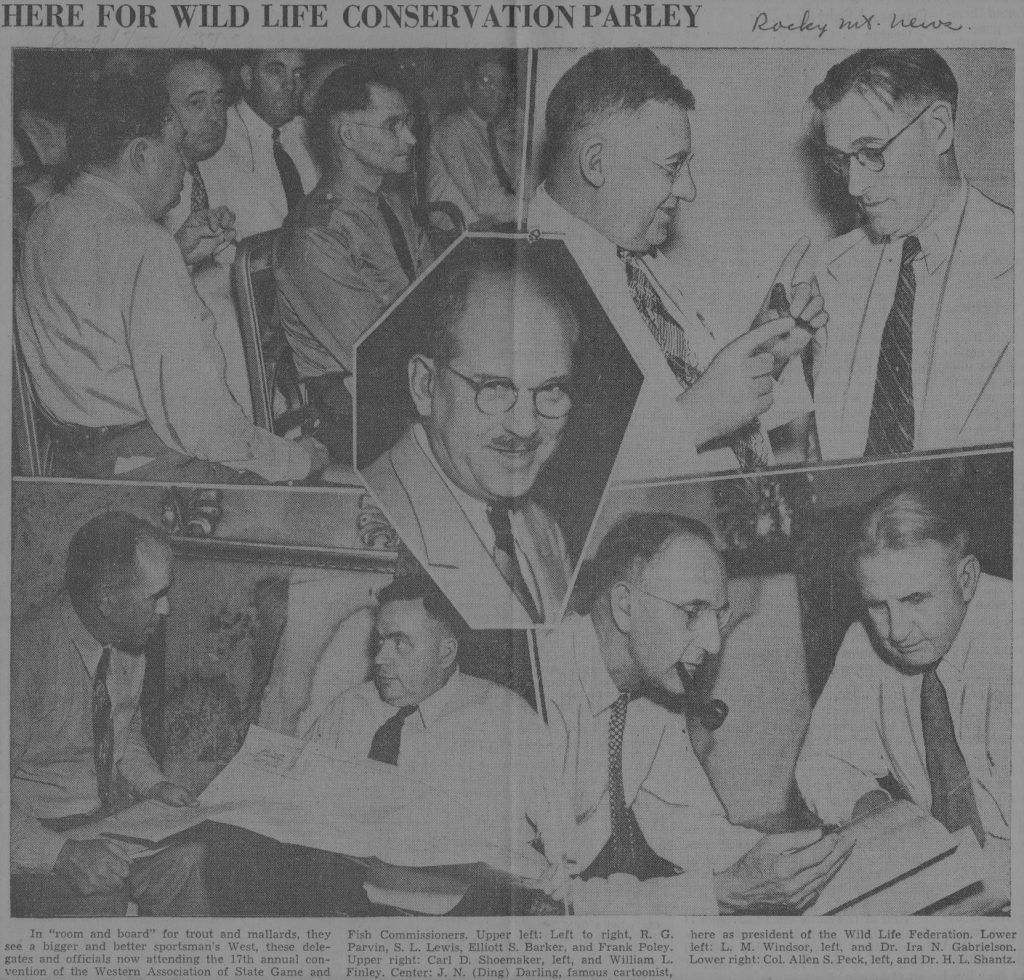Building on a Strong Past to Create a Stronger Future
Continuing the 100-Year Legacy of Advocacy for Scientific Fish and Wildlife Management and Cooperative Conservation in the West
Western Association of State Game Commissioners 1921 – 1929
In the 1920’s, game commissions throughout the West were just beginning to assume their responsible positions with respect to the management of game and fisheries resources. Of particular importance was a threat to state sovereignty in the matter of game management by the growing federal land management agencies. These federal agencies were similarly undergoing a period of growth and were in the process of carving out areas of responsibility which many people believed included the management of game on the vast areas of federal lands in the west. The developing states, feeling that the matter of state sovereignty was paramount, banded together for mutual assistance and protection against what was thought at that time to be a federal push leading toward the management of all wild land resources in these states.
In 1922 visionary managers formed the precursor of today’s WAFWA
In 1922, several “pioneers” from the western states’ game departments met in Salt Lake City to form the Western Association of State Game Commissioners to combat this threat. The important players in this early movement were Dave Madsen of Utah, C. A. Jakways of Montana, A. E. (Cap) Burghduff of Oregon, and Rolly Parvin of Colorado. Seven game officials from some of the western states sat around a table in Dave Madsen’s office in the State Capitol in Salt Lake City to form the first meeting of this Association. Madsen was elected President of the Association in 1922 to be followed by Jakways in 1923, Burghduff in 1924, and Parvin in 1925. The early bylaws provided that membership should consist of the game commissioners or state game wardens of the states of Montana, Wyoming, Colorado, New Mexico, Nevada, Utah, Idaho, Arizona, California, Oregon, and Washington. In those days, fish and wildlife agencies were called “commissions”, although few had a separate commission as we know it today.
Objectives of the original organization were to promote harmony and unity among its members and members of like associations throughout the country for the purpose of exercising a combined and powerful influence in securing the enactment of laws and amendments; to present laws favoring the propagation of wildlife and fish; and to further provide for just, reasonable, and uniform laws and regulations for the protection of wildlife and fish.

Western Association of Fish and Wildlife Agencies
1950s. As member agencies began to alter their structure, so too did the Western Association. In 1957, the name was changed to the Western Association of State Game and Fish Commissioners to reflect the growing emphasis on fisheries programs. In 1978, the name was again altered to reflect changing times. As member agencies became “departments” rather than “commissions”, the Western Association evolved to its current name, the Western Association of Fish and Wildlife Agencies (WAFWA).
1970s. While these early accomplishments were significant, a series of actions undertaken by the Western Association since the late-1970s has established its reputation for innovation and leadership.
While capturing some of the highlights of the past ten decades of the Western Association of Fish and Wildlife Agencies, it doesn’t do justice to the hard work and issues confronted by the thousands of directors, commissioners and professional staffs of member agencies over the years. From its meager beginnings with seven member agencies in 1922, the Western Association has more than tripled in size to now include 19 states, 3 Canadian provinces and 2 Canadian Territories. Not only is it large in size, but the Western Association is larger than life in terms of accomplishments – especially over the past 25 years.
As the Western Association moves into the future, employees of all the member agencies are confident that by working together, the fish and wildlife resources of the West and the habitat upon which those resources depend will be protected and enhanced so that future generations can enjoy our natural heritage.
Developed by Larry Kruckenberg, Past WAFWA Executive Secretary
